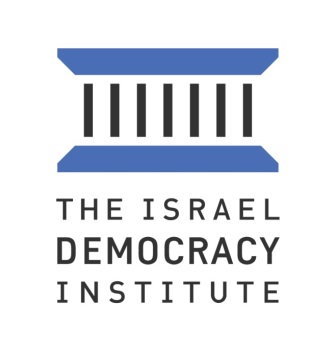Israel's War Cabinet: A Brief History of War Powers and Institutional Ambiguity
Israel’s decision-making in the current conflict must be understood in the context of its government’s complex institutional structure related to war.

Published by The Lawfare Institute
in Cooperation With

 On Oct. 7, thousands of Hamas terrorists crossed the border from the Gaza Strip to Israel and entered civilian towns and villages, as well as army camps, indiscriminately shooting young children, men, women, and elderly people, torturing and raping them, and taking hostages. The terrorists also butchered hundreds of people attending a large, outdoor party near the border. Overall, Palestinian militants killed about 1,400 people—Israelis and others—and kidnapped more than 240 to the Gaza Strip.
On Oct. 7, thousands of Hamas terrorists crossed the border from the Gaza Strip to Israel and entered civilian towns and villages, as well as army camps, indiscriminately shooting young children, men, women, and elderly people, torturing and raping them, and taking hostages. The terrorists also butchered hundreds of people attending a large, outdoor party near the border. Overall, Palestinian militants killed about 1,400 people—Israelis and others—and kidnapped more than 240 to the Gaza Strip.
For almost a year prior to the attack, Israel was consumed with a struggle over a judicial overhaul, which tore apart the country and brought hundreds of thousands of Israelis to the streets for 40 weeks in a row. In the wake of the terrorist attack, it seemed, for a while at least, that these internal controversies had faded into the background. Israel called up more than 300,000 reserve soldiers, and there is not even one single known case in which any of the thousands of reservists, who threatened to stop volunteering if the judicial overhaul would pass, did not report to service. The protesters against the government immediately turned their energies and activism networks, created in order to oppose the government’s policies, toward organizing civilian assistance to the Israel Defense Forces (IDF) and to helping the more than 200,000 Israeli citizens evacuated from their homes in the south and the north of Israel.
The Israeli political arena, however, was slower to respond. A call for an emergency government was raised as early as Oct. 7—the day on which the Hamas attack began—by two of the opposition parties. Prime Minister Benjamin Netanyahu stalled the process for a few days, perhaps with a view to considering the political ramifications of this cabinet on Israel’s tenuous coalition government.
The largest opposition party, Yesh Atid (led by former Prime Minister Yair Lapid), demanded that the extreme right-wing parties of "Jewish Power," headed by Minister for Homeland Security Itamar Ben-Gvir, and "Religious Zionism," headed by Minister of Finance Betzalel Smotrich, would not be part of the emergency government—or at least that their ministers would not hold "security" portfolios. On Oct. 11, the smaller centrist opposition party, "National Unity," agreed to join the existing government without similar conditions. Five of its 12 members of the Knesset were consequently appointed as ministers.
The one significant demand of National Unity party chair Benny Gantz for entering an emergency government was, however, the establishment of a war cabinet with powers to direct military operations during the war. Indeed, such a cabinet was formed. The three members of the war cabinet are Prime Minister Netanyahu, Minister of Defense Yoav Gallant, and Minister Gantz. Ministers Ron Dermer (Likud) and Gadi Eisenkot (National Unity) serve as observers, although it seems that they are full participants in all discussions held in the war cabinet.
In this article, we explain the structure of relevant Israeli political decision-making institutions during war and offer some observations regarding the connection between this apparatus and certain statements made by Israeli politicians regarding the country’s war aims.
The Political Control Over Israel's Armed Forces
The legal configuration of political authority over the armed forces—Israel's "National Security Constitution"—is delineated in Basic Law: The Military, enacted in 1976, in the shadow of the Yom Kippur War (1973). After defining the IDF as the armed force of Israel (Article 1), the Basic Law describes the political institutions entrusted with controlling the army. “Article 2: Subordination to the Civilian Authorities,” reads: (a) “The Army is Subject to the Authority of the Government,” and (b) “The Minister in charge of the Army on behalf of the Government is the Minister of Defence.” According to Basic Law: The Military, the army is subordinate to the authority of the government as a whole. The minister of defense is "in charge" of the army but only on behalf of the government. This means that the minister of defense runs the day-to-day operations of the army, but the government is in charge of the army’s broader strategic decisions.
This interpretation is reinforced by Article 40 of Basic Law: The Government. According to Article 40(a) (as amended in 2001), it is the government that should decide when Israel goes to war, or launches “a significant military operation, which is liable to lead, at a level of probability close to certainty, to war.” This statement, however, is immediately qualified by Article 40(b), which states that "[n]othing in this article can prevent other military actions required for the purpose of defense of the State and public security," without specifying who can order such operations. Historically, Israeli governments have authorized explicitly or implicitly the prime minister, acting together with the minister of defense (and sometimes with the minister of foreign affairs), to approve military operations short of war or action that might lead to war. For example, in Operation Breaking Dawn (August 2022), all operational decisions, adopted at the political level, were made by then-Prime Minister Lapid and Minister of Defense Gantz.
Enter Stage Right: The Cabinet
Israeli governments (by which we mean the ministers of government) are generally large, sometimes consisting of more than 30 ministers. Adopting complex policy decisions in such a large body is difficult; therefore, the government usually operates through smaller ministerial committees, whose decisions are later formally adopted by the plenary government. In the national security sphere, it is especially difficult to operate through the entire government, because Israeli governments are notorious for "leaking" classified information to the press. The solution, adopted by prime ministers since Golda Meir in the 1970s, was to create an informal smaller circle of decision-makers (colloquially referred to as the kitchen or the kitchenette). Only later was this procedure formalized, as detailed below.
According to the Government Law 2001, the government must establish a Ministerial Committee for National Security Affairs (colloquially dubbed the "Security and Foreign Affairs Cabinet", or just the "cabinet"). The cabinet must include the prime minister (as chair), the defense minister, the minister of justice, the national security minister, and the finance minister. The government may add other members to the committee, as long as the total number of members does not exceed half the number of members of the entire government. Prior to Oct. 11, the committee included, in addition to the members required by law, the following ministers: Avi Dichter, minister of agriculture and rural development; Ron Dermer, minister of strategic affairs; Yisrael Katz, minister of energy; and Miri Regev, minister of transportation. After Oct. 11, three new ministers from the National Unity party were added to the cabinet (Ministers Gantz, Eisenkot, and Gideon Sa’ar).
Basic Law: The Government grants the cabinet only one explicit authority: Article 40(a)(1) of the Basic Law permits the delegation of the authority to decide to go to war from the government to the cabinet—either for specific cases or on a permanent basis. In 2018, the government authorized the cabinet to make decisions to go to war on a permanent basis. The activation of such authorization in specific cases is subject to a determination by the prime minister that reliance on the delegation is necessary for reasons of security, foreign relations, or confidentiality.
The process of formalizing the powers of the cabinet over war-related decisions has been viewed resentfully over the years by different prime ministers, and especially by Netanyahu. For political reasons, leaders of the different coalition parties demanded a seat in the cabinet, regardless of their security credentials, and their presence in the cabinet limits the political flexibility otherwise enjoyed by the prime minister in conducting security affairs. Netanyahu thus preferred to make important decisions without consulting the cabinet, which had only scant formal power. Netanyahu usually ensured that the actual decision to launch a major military operation would be approved by the cabinet (for example, Operation Pillars of Defense in 2012 and Operation Protective Edge in 2014). However, Netanyahu, with the minister of defense, maintained control over the operations.
Netanyahu’s maintenance of control was challenged in 2016, however, when then-cabinet member and Minister of Education Naftali Benet demanded that certain national security decisions would be brought to the cabinet. As a result of this demand, the government formed a professional commission headed by the then-National Security Adviser Yaakov Amidror, to make a recommendation to the government concerning the cabinet’s precise role and scope of authority in the national security context. The report was adopted by the cabinet itself in 2017, and it constitutes the most recent source of formal authority for the cabinet vis-à-vis the prime minister.
Among other issues, the report addresses the cabinet’s authorities during wartime. According to the report, the cabinet’s wartime powers would include:
Defining the strategic goals of military operations, after assessing relevant alternatives.
Providing policy guidelines to military leaders, while indicating the objectives that should be achieved by the end of the military campaign, and underscoring the limits that have to be respected while the campaign is ongoing.
Conducting thorough assessments aimed at ensuring that operational plans would achieve foreign policy objectives, while taking current international conditions into consideration.
Identifying additional, complementary efforts (alongside the military effort) that the political leadership or other operational actors should pursue to increase the operation’s chances of success or help achieve its strategic goals. This should include utilizing Israel’s extensive professional knowledge regarding defense and foreign affairs issues.
Enter Stage Left: The War Cabinet
When the National Unity party joined the emergency government, it demanded not only seats in the cabinet but also that a "war cabinet" be formed. A war cabinet is not a wholly new concept. In Britain, during the World War II, following the establishment of a unity government containing all the main parties, a small war cabinet was formed with just five members. And the government agreed that this cabinet would make the major decisions regarding the war. Similarly, in 1974, the Agranat Commission formed after the Yom Kippur War in Israel recommended that small war cabinets be established during wars to run the war effort. Creating a small "war cabinet" was also a major recommendation of the Winograd Commission established after the second Lebanon War (2006). The Winograd Commission stressed the need to appoint to the cabinet ministers with relevant experience, rather than political figures. The two commissions gave various reasons for their recommendations that a war cabinet be formed: a need for decision-making within a small group of people with experience in military affairs, the need to free up other members of the cabinet to operate within their respective ministries in a time of war, and the heightened need for operational secrecy.
It would seem that Gantz’s demand also stemmed from a more practical concern: Gantz needed to bypass the politically extreme members of the broader security and foreign affairs cabinet if he wished to have any impact on the actual running of the war. Since Netanyahu was unwilling to dissolve his existing coalition, the only feasible political solution was to transfer the real power from the security cabinet to the war cabinet. Still, according to the emergency government agreement, the formal decision-making powers remain with the existing security cabinet (or the plenary government in certain cases). The war cabinet is therefore only responsible for the realization and implementation of the security cabinet’s decisions.
Implications of the Institutional Structure
This complex and ambiguous institutional structure raises two issues for consideration. First, since the cabinet retains its formal powers, there is always the possibility that the members of the cabinet, especially the extreme right wingers on it, would try to challenge the decisions of the war cabinet and demand that the full cabinet relitigate the same issues. Indeed, this already happened when the war cabinet authorized the entry of humanitarian convoys into the Gaza Strip, and Minister of Finance Smotrich claimed that the decision should have been taken by the war cabinet. As the war progresses, and disagreements continue to emerge, this problem might become increasingly acute. In fact, the fear of this "double cabinet" and the confusion that might result from it, was one of Lapid's main reasons for not joining the emergency unity government.
Second, the presence of three decision-making forums (government, security cabinet, and war cabinet) creates a problem of "left-outs," which in turn complicates Israel’s ability to demonstrate to the international community the legitimacy of its actions during war. Because only five politicians, coming from two parties (Likud and National Unity), participate in the war cabinet, many other senior ministers, representing the four other coalition parties—and especially the two extreme right parties—are left out of the decision-making process. Unfortunately, some of these ministers, and other members of the Knesset from the coalition parties, find it necessary to publicly air their extreme views regarding Gaza in the "day after the war" and their support of an extreme Israeli response as a way to insert themselves into public view and associate their positions with the war effort. Their radical statements cause significant diplomatic harm, as they throw into doubt Israel's commitment to international law, and, in particular, to the law of armed conflict. For example, Israel’s Energy Minister Katz—a member of the cabinet but not of the war cabinet—wrote on his social media page that no “electrical switch will be turned on, no water hydrant will be opened and no fuel truck will enter” until the “abductees” are released.
In practical terms, it is not at all clear that any of these statements have a tangible impact on IDF policy. The IDF spokesperson, senior IDF command, and the war cabinet appear to ignore them completely. The problem is that out of fear of "public opinion," with one or two glaring exceptions, even centrist politicians fail to explicitly condemn extreme statements, so as not to be seen to be “soft on Hamas”—especially when such aggressive positions might appeal to the broad public sentiment currently prevailing in Israel. Still, since soldiers, especially reserve soldiers, might be affected by the statements in question, it is important that they are publicly repudiated.
One example is Minister Amichay Eliyahu's—a member of the Jewish Power party—suggestion that perhaps a solution for Gaza is to use an atomic bomb. Obviously, this is an illegal and immoral idea (and also a very stupid one strategically, since Israeli cities are so close to the Gaza Strip). Clearly, Eliyahu should have been fired on the spot. The fact that he wasn't, and Netanyahu contented himself with reprimanding Eliyahu, is a good example of the political considerations underlying Netanyahu's decision-making at this point, as Jewish Power is an important part of his far right-wing coalition.
At the international level, most observers find it difficult to navigate Israeli politics and to assign appropriate weight and significance to statements offered by different members of the Knesset. The fact that such statements are made by Israeli officials or coalition members is often enough for them to be considered as representative of the actual Israeli position. For example, a "concept paper" issued by the "ministry of intelligence affairs" recommended that Palestinians should not be allowed to return to Gaza City after the war. Israelis realize that this is a made-up ministry, created only as a partisan entity without real power, whose head is not a member of either the security and foreign affairs cabinet or the war cabinet, and that this recommendation has zero impact. But it is difficult to explain this strange reality to people outside of Israel. Without a clear repudiating statement from top-level decision-makers, Israel will find it hard to preserve whatever international support it still enjoys and to fend off the diplomatic harm caused by these statements.






